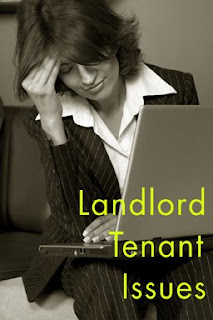
Let us start with some basics. Like most relationships, a tenancy is far easier to begin than it is to end. Therefore, your goal as a landlord or property manager, is to take all reasonable steps to minimize problems down the road. The basics are simple. Always use a lease. Pre-screen all applicants. Monitor tenant compliance with the lease. Be responsive to legitimate tenant concerns. Terminate any tenancy quickly and efficiently if things are not working out.
The focus of this missive is on preventative medicine. The key is to screen out high risk tenants without exposing yourself to a claim of discriminatory behavior at some point in the future.
All prospective tenants must be treated in the same manner. They must be asked the same questions and they must be judged by the same standards. The first step in the process is usually going to be a determination whether the individual can afford to pay the rent.
You are permitted to request information regarding the applicant and any co-applicant as to his or her current employer, address, telephone number and length of time employed. You may ask for the supervisor’s name and how to reach this person. You may ask about gross income and net income. You also have the right to request banking references (where do they bank, their account number and the type of account in question). As a landlord, you have the right to have them provide you a credit report.
These can be requested by the tenant sending a letter to:
Annual Credit Report Request Service, P.O. Box 105382, Atlanta, GA
30348-5281.
You have the right to inquire about criminal history of all prospective tenants. While you may not simply ask whether someone has ever been arrested for a crime, you have the right to ask whether the applicant or any household members have ever been convicted of a criminal offense, and if yes, the details. You can obtain a criminal history report from the State of Maine at the
State Bureau of Identification or you can phone them at 207-624-7240.
Another crucial site to check is the
Maine Sex Offender Registry. One of the common reasons given by landlords and property managers for not seeking credit reports or conducting criminal background checks is the cost. While we acknowledge this can be a significant drain on a budget, it is important to keep in mind that you do not need to do this on each and every applicant. You may require the prospective tenants to provide this information initially, make a determination regarding overall financial ability
and suitability and then incur the expense for credit checks and criminal background checks only on those applicants who are otherwise qualified for the tenancy.
Between State and Federal law, there are literally dozens of questions that you cannot ask. For example, while you may ask an applicant whether he or she is a U.S. Citizen and whether they are legally eligible to remain permanently in the United States, you may not ask anything about their nationality, lineage, ancestry, descent, or the birthplace of either the applicant or his or her relatives. You may not ask about their native or primary language, or how they learned to read and write. You may not ask how long they have lived in the United States. Questions regarding religious denomination, affiliation, place of worship, religious leaders, or the religious holidays they observe are not permitted. You may not ask someone about their arrest record, although as indicated earlier, questions regarding criminal convictions are permitted. Maine law prohibits any inquiry as to whether an applicant is pregnant, has children, or plans to have children. However, you may ask an applicant how many individuals will be residing in the unit dwelling. You may not ask someone their maiden name (other than for credit check purposes) or their marital status. You may not inquire as to the sex, sexual orientation, gender identity or gender expressions of an applicant. You may not, under any circumstances, request a photograph with the application. However, you may ask to see the driver’s license or state identification for any potential occupants. You have the right to request the names of all individuals who will be residing in the household. You may inquire about someone’s smoking or non-smoking. You may ask an applicant how he or she intends to pay the rent.
Last, but not least, you have the right to confirm the current address of the prospective tenant, determine the name, address and telephone number of the current landlord, and may inquire of him or her. If you determine that the duration of the relationship between your prospective tenant and his or her former landlord is not long enough to satisfy you, you have the right to inquire as to the prior landlord.
Finally, I have consistently urged my clients to include the following “Authorization” at the end of each application (just above the signature line): “The undersigned hereby represents that all of the above statements are true and complete and hereby authorizes verification by the landlord. Failure to answer any of the above inquiries entitles the landlord to reject this application. False information given above entitles the landlord to (1) reject this application
and/or (2) terminate tenant’s right to occupancy if the false information is discovered after the tenant takes occupancy.”
Neil S. Shankman,
Attorney, Lewiston, Maine


















